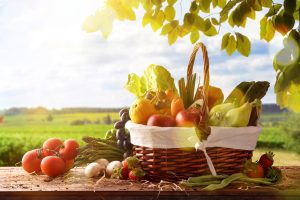 You know all about what you need to eat stay healthy: fruit, vegetables, etc. But is that all you need to know? Is it essential to know where that food came from?
You know all about what you need to eat stay healthy: fruit, vegetables, etc. But is that all you need to know? Is it essential to know where that food came from?
Much of the produce available on store shelves has been covered in pesticides. Farmers use them to help maintain the health of their crops to make it to the tables of their customers. Other farmers, however, choose to go pesticide-free and produce organic produce.
Advertisement
“Pesticide” sounds dirty. Many people are put off by them and buy organic. But let’s be real: organic is expensive, and it’s simply not an accessible option all the time for most people.
As unhealthy as “pesticide” sounds, there is little evidence to show conventionally grown produce is bad for you. It’s possible that they may have effects on metabolic health and more, however, if they are not rinsed or cleaned off of produce before eating.
Each year, an organization called the Environmental Working Group (EWG) publishes two lists: the “Dirty Dozen” and the “Clean Fifteen.” The former is the produce found with the highest levels of pesticide residue, and the latter has the lowest.
If you have the budget for some organic but not all, these are the foods you might want to prioritize buying organic and conventional.
That said, buying conventionally grown produce, adequately rinsing it, and scrubbing when needed should remove the pesticide.
Advertisement
At the end of the day, it’s always better to eat as many fruits and vegetables as possible, regardless of how they are grown. After all, there isn’t really evidence to show organically grown food is any healthier.
The Dirty Dozen
- Strawberries
- Spinach
- Kale, collard, and mustard greens
- Nectarines
- Apples
- Grapes
- Bell peppers/Hot peppers
- Cherries
- Peaches
- Pears
- Celery
- Tomatoes
Clean Fifteen
- Avocado
- Sweet corn
- Pineapple
- Onions
- Papayas
- Frozen sweet peas
- Asparagus
- Honeydew melon
- Kiwis
- Cabbage
- Mushroom
- Cantaloupe
- Mango
- Watermelon
- Sweet potato
